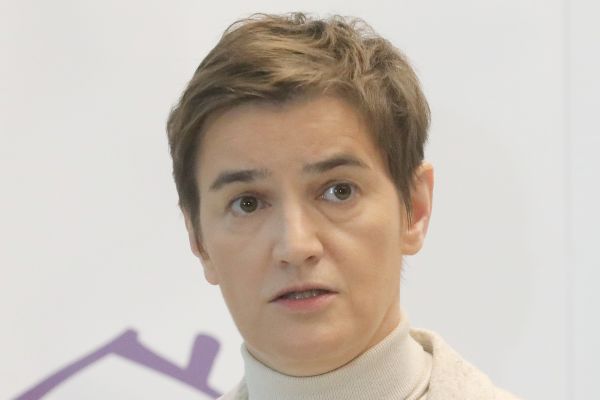Prime Minister Ana Brnabic stated that the National Bank of Serbia made analyses for the sector of information and communication technologies for the period until the end of October this year, which show that the value of export of this sector stands at as much as €1.470 billion.
- Serbia
Get to know Serbia
- Citizens
Culture and science
Health services
Pension and disability insurance
- Business
Employment
Economy
- Media
- Government
- Contact
Keep in touch
Keepin touch
Whether you have a question, comment, suggestion or any problem in the purview of the government, send us your message and we will try to respond as soon as possible. If your problem is not in our purview, we will forward your message to the relevant institution.
Surplus from IT sector approximately €1.5 billion
In an appearance at Happy Television, Brnabic said that this represents the value of export of our intelligence and that this means that our innovators created something that was exported abroad in that value.
Today IT sector is our most profitable net export industry, it exceeds agriculture in terms of export volume. IT sector has a greater share in GDP than, for example, constriction industry and everyone knows how much it is being built in Serbia, she stated.
The Prime Minister recalled that in the period from 2008 to 2021, the value of export and surplus in the IT industry has changed significantly.
In 2008, export of IT industry stood at €178 million and there was no surplus. By the end of 2021, export will be around €2 billion, and surplus in the first 10 months of the year is almost €1.5 billion.
When we formed the Ministerial Council for IT in 2016, 19,000 people were employed in the programming sector alone, while today we have 43,500 employees and in just five years we have more than doubled that number, the Prime Minister pointed out.
Commenting on the protests against the "Open Balkans" Initiative in Tirana, Brnabic said that it is obvious that some politicians in the region still cannot see a different future and that their only policy is a policy of conflict and not a policy of cooperation.
The Prime Minister explained that it is important that we have freedom of movement of people, capital, money, services and data, and that all of us in the region need that in order to create conditions for a different future.
I am sure we will succeed in that and that a large number of people want that, Brnabic underlined.
This initiative is not opposed to the EU, nor is it a consolation prize, it is complementary to the EU. If we show that we can cooperate in the region on our own, it will not only affect our faster economic growth and development, but we will really be able to live what we should live within the EU tomorrow, and that is to have free movement, free flow of goods and services and to have no borders.
According to her, if "Open Balkans" starts operating at its full capacity as soon as possible, everyone will be closer to the EU, and there will be a higher inflow of investments and more young people will stay in the region, which will become more stable.
-
_06_25_2025.webp) Belgrade, 25 June 2025
Belgrade, 25 June 2025Budget Fund for National Minorities in 2025 to amount to RSD 25 million
-
 Belgrade/Athens, 23 June 2025
Belgrade/Athens, 23 June 2025Strategic partnership between Serbia, Greece in areas of common interest
-
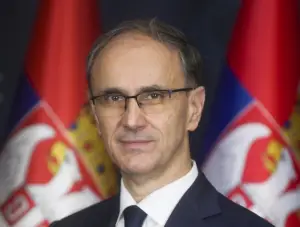 Belgrade, 23 June 2025
Belgrade, 23 June 2025Prime Minister on working visit to Athens
-
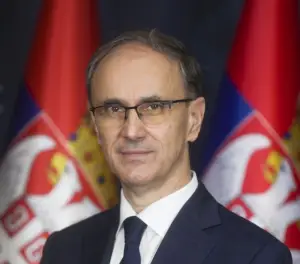 Belgrade, 20 June 2025
Belgrade, 20 June 2025Serbia, Egypt committed to strengthening trade, political ties
-
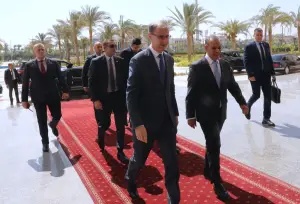 Belgrade/Cairo, 19 June 2025
Belgrade/Cairo, 19 June 2025Gratitude to Egypt for support in evacuating Serbian citizens from Israel
-
 Belgrade/Cairo, 19 June 2025
Belgrade/Cairo, 19 June 2025Potential to enhance cooperation with Egypt in multiple fields
-
 Belgrade/Cairo, 19 June 2025
Belgrade/Cairo, 19 June 2025Serbia committed to preserving peace, understanding among religious communities
-
 Belgrade/Cairo, 18 June 2025
Belgrade/Cairo, 18 June 2025Serbia firmly committed to nurturing historical, spiritual ties with Egypt
-
 Belgrade/Cairo, 18 June 2025
Belgrade/Cairo, 18 June 2025Exceptionally substantial talks between Macut, Arab League Secretary-General
-
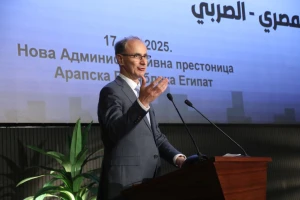 Belgrade/Cairo, 17 June 2025
Belgrade/Cairo, 17 June 2025Considerable space for multifold increase in trade exchange with Egypt

